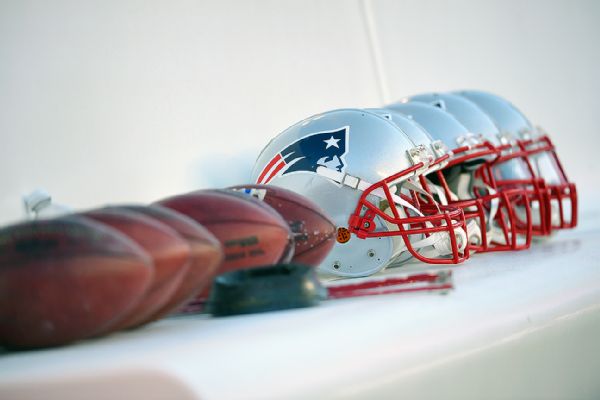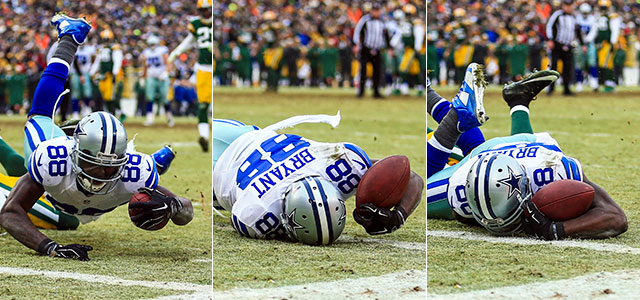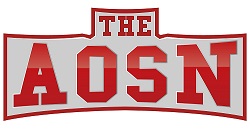NFL Probe Implicates Patriots Employees, Brady in Deflategate
NFL-appointed attorney Ted Wells released the findings of his investigation into the “Deflategate” incident following the AFC Championship playoff game between the New England Patriots and the Indianapolis Colts today.
Summary of the findings
At issue, in the words of the report, were “actual or suspected competitive violations” that were to be “thoroughly and promptly investigated. per league policy on competitive integrity and rule enforcement.
Wells’ investigation concluded that the probability was high that “New England Patriots personnel participated in violations of the NFL Playing Rules and were involved in a deliberate attempt to circumvent those rules.” Locker room attendant Jim McNally and equipment assistant John Jastremski were implicated as particularly egregious in a deliberate attempt to skirt Rule 2 of the official NFL Rulebook covering the acceptable range of inflation for game balls.
Furthermore, quarterback Tom Brady was also singled out for being “at least generally aware” of McNally’s and Jastremski’s actions. Head coach Bill Belichick and head equipment manager Dave Schoenfeld were exonerated in the report, with Wells not finding any evidence to indicate their awareness or knowledge of any wrongdoing.
The key piece of evidence unearthed by Wells was text messages exchanged between McNally and Jastremski that showed a conversation about their plan to deflate the balls in exchange for shoes and signed footballs from Brady. The details contained in the text exchanges and other surrounding evidence were cited by Wells as factors that helped lead to the investigation’s conclusions, because to dismiss all those factors “requires the acceptance of an implausible number of communications and events as benign coincidences,” and while the messages could have been construed as humor, it became evident to Wells that they were attempts at humor based on actual events.

What next for the NFL?
Per NFL policy, the Wells report and its findings will now be handed over to the Troy Vincent, NFL executive Vice-President of Football Operations. NFL Commissioner Roger Goodell’s statement on Wednesday morning read as follows:
I want to express my appreciation to Ted Wells and his colleagues for performing a thorough and independent investigation, the findings and conclusions of which are set forth in today’s comprehensive report. As with other recent matters involving violations of competitive rules, Troy Vincent and his team will consider what steps to take in light of the report, both with respect to possible disciplinary action and to any changes in protocols that are necessary to avoid future incidents of this type. At the same time, we will continue our efforts vigorously to protect the integrity of the game and promote fair play at all times.
Conclusion
Equipment tampering is not something that is exclusive to football, nor is it a new phenomenon. Around the sports world, there are plenty of instances where athletes and teams are given leeway in terms of preparing and using equipment. Tennis players string their rackets at varying degrees of tension. Race teams are given parameters for how they may tune their drivers’ vehicles for performance. Golfers have flexibility when it comes to choosing what type of clubs they may use on any given round. Even when it comes to the rule(s) in question here, NFL teams are not given a set standard for inflating game balls, but are instead given an acceptable range.

Although one might have reasonably asked Dallas Cowboys receiver Dez Bryant right after his team’s playoff loss against the Green Bay Packers if an underinflated ball makes a difference in a players’ ability to catch or hold on securely to a ball; or reasonably assume without having to play a down in the league that an underinflated ball makes gripping the ball for a pass a lot easier, increasing a quarterback’s odds of better throws and a higher pass completion rate, neither of those are the core of the matter.
What makes this situation perplexing is that based on the level of play during the AFC Championship, New England did not need any help in beating Indianapolis that night. Make no mistake, however: the point of contention here is not how much the deflated balls helped Brady and his teammates on the day. The issue is an emerging conspiracy on the part of several team personnel to ensure a competitive advantage whilst in clear violation of league rules.
That is what the league has to address most of all, and in order for true competitive integrity across the board, penalties can and should be levied. Furthermore, any league disciplinary action should be punitive. The sport is a multi-billion dollar industry, and financial slaps on the wrist do nothing in terms of a deterrent factor, to say nothing of the impression of allowing teams and players that break league rules to get off easy.
The league should not be overly harsh on New England simply to make an example out of them, though it is also worth keeping in mind that within the past decade, this is an organization that has already broken rules in search of an advantage on the field of play and has also engaged in questionable (if not illegal) play-calling to confuse the opposition.
While the Patriots fanbase may argue that much of the negative reaction surrounding “Deflategate” has to do with a bias against their team, that is simply not the issue. If a team like the Jacksonville Jaguars or Oakland Raiders had committed such actions, NFL fans everywhere would be ridiculing them for cheating without anything to show for it, with the act of cheating remaining as the key point.
Penalties such as the following should be on the table for the NFL: a six- or even seven-digit monetary fine; stripping New England of draft picks; imposing a lower salary cap; and a suspension for Brady if more conclusive evidence of his involvement and knowledge of the tampering comes to light. Because Wells’ report did not appear to find any systemic attempt by the franchise to manipulate equipment for their gain, it seems unlikely that any penalties will be on a larger scale (e.g. stripping early-round draft picks or a fine in the millions).
http://gty.im/461976656
However, the organization is reflected by the actions of its employees and players, and because several employees failed the New England Patriots, the New England Patriots have failed the NFL by extension. Accountability has to begin somewhere, and in Brady’s particular case pending evidence, a suspension and fine should be forthcoming, especially considering that he has now essentially been caught with a lie following his defiant press conference following the AFC Championship game in question.
Brady may continue with the denials and refuse to cooperate with further NFL Executive Committee questioning, but his reticence will speak volumes in and of itself. If nothing else, his refusal to cooperate with the probe would amount to a general obstruction of justice in a regular investigation.
As for the organization, it is not beyond reason that depriving a team of draft picks or salary cap increases would be an example of the punishment fitting the crime when the offense was breaking the rules in violation of competitive integrity.
At the end of the day, there is no telling what the league will do with the results of this probe. What seems clear is that to preserve any notion of fair play and ensure that any whispers of preferential treatment are silenced, Commissioner Goodell, Mr. Vincent, and the NFL Executive Committee should be transparent and forthcoming with the deliberation process and reasoning.

[…] Ted Wells’ findings implicated the New England Patriots of roles in the “Deflategate” scandal, the NFL has […]